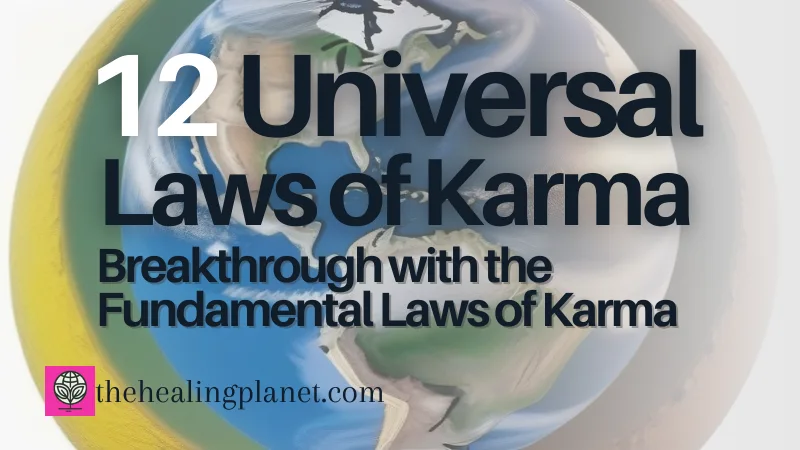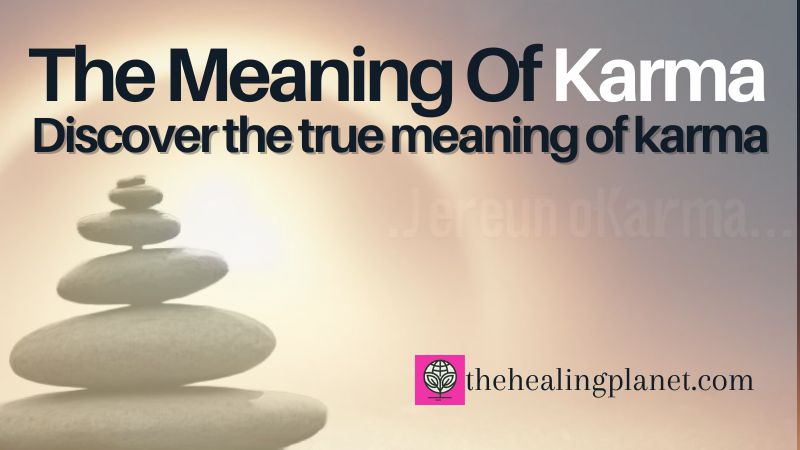The mystical phenomenon of Karmic Retribution unraveled: Unveiling the cosmic forces behind the equilibrium of justice.
The concept of karma has fascinated and influenced cultures throughout history.
It is often described as the force that determines the consequences of our actions, whether good or bad. Karma teaches us that what goes around comes around, and that the universe has a way of balancing the scales of justice.
Explore the phenomenon of karmic retribution and its impact on individuals and society as a whole.
Quick Links
Understanding the Principles of Karmic Retribution
The law of cause and effect is at the core of karmic retribution.
It states that every action we take has a corresponding outcome, and that our deeds shape our future. When we perform good actions, we set in motion a positive chain of events that ultimately benefits us and those around us.
On the other hand, negative actions attract undesirable consequences, perpetuating a cycle of negativity.
Furthermore, karma teaches us about the interconnectedness of all things. Our actions have a ripple effect, impacting not only ourselves but also the people we interact with.
When we do good deeds, we inspire others to do the same, creating a wave of positive energy. Conversely, when we engage in harmful actions, we breed negativity within our communities.
Real-Life Examples of Karmic Retribution
In our own lives, we may have experienced instances of karmic retribution. For example, performing acts of kindness without expecting anything in return often leads to unexpected rewards.
It could be as simple as someone returning the favor when we least expect it or receiving unexpected opportunities that align perfectly with our desires.
On the flip side, those who engage in negative actions may find themselves facing recurring negative events. This could manifest as ongoing conflicts, career setbacks, or strained relationships.
These experiences serve as reminders that our actions have consequences that extend beyond the immediate moment.
Throughout history and across different cultures, references to karmic retribution can be found. In ancient belief systems, such as Buddhism, Hinduism, and Jainism, karma and its effects play major roles.
The belief in the justice of karma is also evident in folklore and mythology, where tales of divine retribution demonstrate the consequences of one’s actions.

The Value of Karmic Retribution in Modern Society
Karmic retribution holds significant value in our modern society.
When we reflect on our actions and understand the impact they have on ourselves and others, it cultivates self-awareness and personal growth.
Examining our past behaviors allows us to make amends and strive for better choices in the future. Through this process, we develop empathy and understanding towards the experiences of others.
Moreover, karmic retribution encourages ethical and responsible decision-making.
Recognizing that every action has consequences motivates us to consider the moral implications before making choices. By doing so, we contribute to social harmony and peaceful coexistence, as a society built on compassion and fairness is more likely to prosper.
Can we help you with anything else?
Debunking and Addressing Skepticism
Despite the widespread belief in karma, skepticism and doubt exist.
Critics argue that occurrences attributed to karmic retribution may simply be coincidences or products of selective perception.
Others attribute the belief in karma to personal belief systems or cultural conditioning.
However, it is essential to approach the concept of karmic retribution with an open mind and a willingness to explore deeper meanings.
While we cannot prove the existence of karma scientifically, there is value in embracing the idea as a guiding principle for personal growth and positive change.
By questioning, reflecting, and seeking our own understanding, we open ourselves up to the transformative potential that karmic awareness can offer.
Conclusion
Karmic retribution serves as a potent reminder of the power of our actions.
It teaches us that the universe has a way of restoring balance and delivering justice. By understanding the principles of cause and effect, and recognizing the interconnectedness of all things, we can navigate our lives with greater awareness and responsibility.
As individuals, we have the ability to shape our own destiny and contribute to a better world. By embracing the idea of karmic retribution, we empower ourselves to make choices that align with our highest values.
Let us reflect on our actions, consider their karmic implications, and strive to create a ripple effect of positivity and justice in our lives and the lives of those around us.











